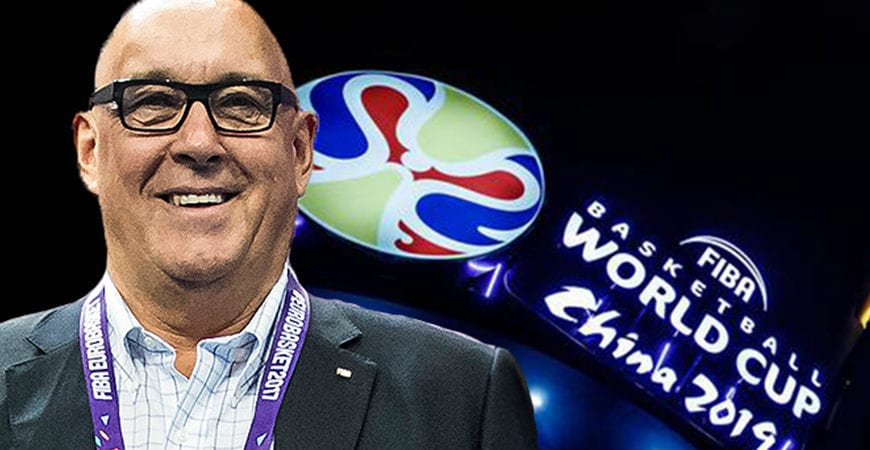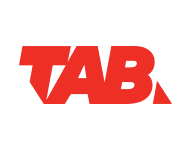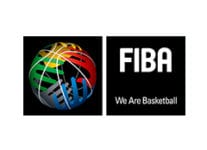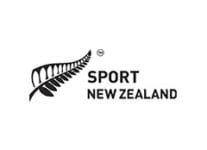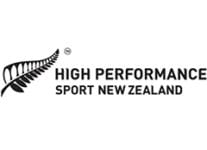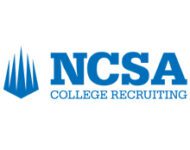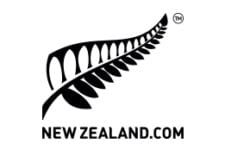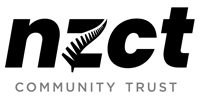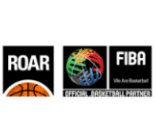Unbeknown to most Kiwis, there is a New Zealander who is managing the second biggest sport in the world. Burton Shipley occupies one of nine governing positions within the FIBA Executive Committee – the top table at FIBA headquarters based in Mies, Switzerland on the shores of Lake Geneva. The decisions made by this group ripple around the world to the 213 national federations under its watch.
Chief Executive of Basketball New Zealand, Iain Potter, says this rise to the basketball round table is an exceptional one.
“As a nation we should be very proud and celebrate that a New Zealander has achieved such a high position in a major global sporting organisation,” says Potter. “Burton’s love for the game and genuine desire to improve the game’s reach has driven him all the way.”
Shipley has evidently made an impression in Geneva. The trust placed the Cantabrian by his FIBA peers was endorsed in August 2016 when he was appointed to another influential position in global basketball – Chairman of the Coordination Commission for the 2019 FIBA Basketball World Cup. In short, Shipley is now shouldering the responsibility of ensuring the 2019 World Cup in China happens without a hitch. He is in charge of seeing the competition runs with high-spec venues, ceremonies, volunteers and crowds.
So how did Shipley go from fulltime farmer to moving and shaking international basketball? He says it probably started when his love for basketball was first ignited as a player, getting his first taste for the game as a student at St. Andrew’s in Christchurch, New Zealand in 1965.
“I absolutely loved it,” says Shipley. “We had a Physical Education teacher who was a basketball nut and I got on particularly well with him. I was also at boarding school, so it’s great to find things that you can do on your own – basketball provides that opportunity. It was easy to go to the gym and get some time out.”
Shipley excelled, pushing up through the grades. He went on to represent Canterbury as an age-group player, won national titles with his YMCA club side and became a key player for the Canterbury senior men’s team. He trialled for the New Zealand Tall Blacks, but didn’t make that squad – his international duties were instead destined for later in life as an administrator.
He says his skills in administration and business were developed early as a farmer. After graduating school, he stepped into the family business and some early commercial lessons. “Running a farm is a wonderful way to learn how to make money and lose money,” he laughs over the phone, speaking from his home in Auckland.
It wasn’t until the late 1980’s that Shipley retired from farming, when wife Jenny became a Minister of Parliament (and later the Prime Minister of New Zealand). They moved to Wellington, New Zealand’s Capital and public service hub. Shipley found work for an investments company in the same city, honing his skills behind the desk, yet basketball was never far from Burton’s heart.
While checking investment portfolios, he was approached to Chair the New Zealand National Basketball League in 1999. Shipley accepted and excelled there, so much so that in 2003 he accepted a position on the Basketball New Zealand Board. His impact on the game was noted by the owners of the New Zealand Breakers, Liz and Paul Blackwell, who recruited Burton to Chair the ANBL club’s Board in 2005. It was FIBA’s turn next.
Shipley’s role with FIBA
FIBA became aware of Shipley’s administrative résumé when Basketball New Zealand nominated him for a governing role for FIBA Oceania. That nomination was successful and FIBA enlisted Burton to help drive basketball in lesser developed nations throughout the region. It’s a passion that still drives Shipley today is his role as President of FIBA Oceania. “Last year, we did 94 projects in the Pacific, which is not bad for an office of five people,” he says proudly.
That said, his major project and deadline is the start of the FIBA World Cup on 31 August 2019. FIBA want their World Cup to be one of the biggest sporting competitions around the world. While they freely admit the Football World Cup will be number one for some time, they’ve set their eyes on the more achievable number-two spot. So the 2019 event in China is a big target for FIBA and they’ve placed a mountain of faith in Shipley to get that event up and running without delay. Yet the task is not an easy one, especially when hosting in a foreign country with the biggest population in the world, across eight massive cities: Beijing, Nanjing, Shanghai, Wuhan, Gaungzhou, Dongguan, Foshan and Shenzen.
“Every one of those cities would like to have the opening. They all would like to have the closing. They would all like to have the biggest crowd. So they are competitive,” says Shipley. “Another challenge is that there are enough people there that they’re going to fill the stadiums. So they don’t need to think a lot about pushing the event outside China – of course we want them to think globally.”
The complexities of the job require someone with an understanding of how to operate in China, which is part of the reason Shipley was given the role. Shipley was noted by FIBA for excelling at diplomacy in the region, particularly when China was bidding to host the 2019 World Cup and Shipley was leading the Evaluation Committee that reviewed the applications.
“We had the Philippines and China competing, so I went to both countries two or three times to check out facilities, and processes and possibilities. Then in 2015 we selected China at a meeting in Tokyo. Through the whole process I had established pretty good relationships with the Chinese people. My wife and I had both done a lot of work in China as well – we’d been going to China reasonably regularly for around 25 years. So I guess FIBA weighed all this up and asked me to chair the Coordination Commission.
“I find it really interesting to work in China. No matter what you think, there is always another level below or above what you thought. So it’s a complex place to deal with,” says Shipley.
Basketball in China
In China, the interest in basketball is vast. The players that make up their national basketball team are heroes and the fanatical audience that follows them is immense. As an example, 339 million viewers watched the team in the 2015 Asia Championship. During the Grand Final, 38.7 million Chinese tuned in to watch them take on the Philippines. The World Cup is expected to step it up a level. Shipley says promotions in China get a natural boost with one of their biggest celebrities endorsing the event – Yao Ming. The former NBA star is the first ambassador of the World Cup and Chairman of China Basketball. Shipley adds that when considering the grassroots love of the game in China, this scale is incredibly unique.
“When China did its presentation in Tokyo in 2015, they had some independent research estimating that there were 300 million people in China that played basketball each week. It’s bigger than football in China by a long way.”
New Zealand’s Opportunities
Shipley says there are potentially a wealth of opportunities for New Zealand basketball through the new World Cup system, which sees New Zealand playing in the new Asia Zone.
It’s no secret that New Zealand’s national basketball teams have struggled for sponsorship in New Zealand. Chief Executive of Basketball New Zealand, Iain Potter, says this FIBA World Cup could be a tipping point for the Basketball New Zealand brands, particularly the Tall Blacks. With a clear understanding of how big basketball is in China, it’s not surprising that a large Chinese refrigeration company – MBO – and an investments company specialising in commodities for Chinese clientele – Security Placements – have jumped at the opportunity to sponsor the New Zealand team.
Fortuitously for those companies, New Zealand was drawn with China in the early rounds of the FIBA World Cup Qualifiers. All eyes will be on the Tall Blacks brand this month when the Tall Blacks travel to China to play them on 23 February. Then China will travel to New Zealand for game two on 1 July in Auckland. This, along with global-basketball’s fascination with the Tall Blacks haka, means the Tall Blacks brand will be one of the most viewed New Zealand brands in China.
“Yes, I think it’s very true,” agrees Shipley. “I don’t think the New Zealand businesses that are operating in China have any idea as to the potential opportunity that sits with the Tall Blacks.
“You have to remember that the Tall Blacks are one of five teams that have made it to the final 16 in all of the last four World Cups. So the Tall Blacks have a good reputation. The most viewed television segment from the 2014 World Cup in Spain was the Tall Blacks’ haka to the U.S. team. Interestingly, the biggest crowd in 2014 was the game when New Zealand played Finland. But if you asked anybody in the street in New Zealand, it’s likely they would have no idea. It’s a missed opportunity.
“The Tall Blacks brand is perceived incredibly strongly in basketball. Here are all these guys that do this haka at the start of the game, which nobody else sees around the world. They’re strong and known as being a tough team. No matter who they are playing, they don’t give up. In the 2014 World Cup, the Tall Blacks were the team that got closest score-wise to the USA in the whole of the tournament. New Zealand is known as being a hard team to beat. You never get an easy game. They always play physical basketball and do it well.”
That said, the FIBA Basketball World Cup is gathering momentum. FIBA are ramping-up this World Cup like never before, with guaranteed home games for most competing nations, which helps teams connect with their home fans. Also FIBA are investing heavily to ensure these games are broadcast. But as Shipley says, it will take time, especially in New Zealand.
“I had a call with a very international New Zealander who had met and had dinner with the Tall Blacks in Hong Kong, in November. He said to me, ‘Burton, New Zealand has no idea as to how big this is.’ And I said, ‘You’re right.’”
The next FIBA World Cup qualifying window is from 19 to 27 February where the Tall Blacks will play two away games against China and Korea.

